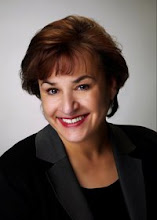I want to mention to my readers, and to the world in general my concern, frustration, and delight from Google University Medical School.
Most of my patients have access to the internet. That means they have access to lots and lots of information. Google any set of symptoms, drugs, treatments or diagnoses and lots of information will pop up.
Some of that information is good, and written for lay people to understand. Some is educational and written to teach. Most is for professionals, or so over the top of understanding, that lay people are not able to place the information in perspective. That becomes a real problem with patients who are not just their own advocates, but now become their own worst enemies.
Information is powerful, but just as we give a kid the keys to a car at age 16, many will have accidents that first year of driving until they "get the hang of it" or gain experiencethe real world situations.
It's like that for medical information. I have women who have self diagnosed via the internet requesting lab tests, medications, interventions to further their health. It then becomes a challenge to deny them what "the internet" has told them to be true. I am now the bad guy, or worse, don't pay attention to them. Lord, I am trying to save their wallets and their bodies from themselves.
Some problems such as ovarian cancer have vague onset of symptoms, if there are any at all. There has been almost no real advance in many decades for early diagnosis. Lots of research is ongoing to find a way to make an early diagnosis of this terrible illness. So far, nothing to hang your hat on. Just a lousy disease to get because symptoms are vague. So , every time someone feels bloated, full, gains weight, or has a change in bowel habits and looks this up on the internet, they will get one of the various possible diagnoses as ovarian cancer. BINGO! I need lots of tests to find out! Cha Ching! There goes $2000 of health care dollars spent on a wild goose chase. The poor lady who actually has Ovarian Cancer probably doesn't have a clue until it is advanced.
The same goes for medications. No patient is safe. Adverse effects are everywhere. Don't take any. They are bad for you, and besides someone knows someone who is related to someone who saw it on Oprah that it did harm to somebody. You might ask your pharmacist or physician about medications before you throw away your prescriptions or don't take your medications because you are afraid of them.
That is one of the teasers for compounded medications, no FDA paperwork to scare patients. Same ingredients, just no press. Misleads people into thinking that no press means completely safe. The same goes for OTC products, herbs, or supplements. People trust them because they see their doctor as the enemy. When did that happen?
I ponder the plight of my patients who do not trust me. I wonder if that is as common as I suspect. A recent study showed that 6.2% of patients do not fill or take their prescribed medication from the get go, and many more come armed to the teeth to the doctor to argue with them regarding recommendations.
The communications and teaching function of a physician with their patient cannot be overlooked, but that has to be a two way street. The covenant between doctors and patients needs to be renegotiated to include compliance and disclosure. It needs to reestablish trust on both sides.
Your thoughts?
ladies doc
Subscribe to:
Post Comments (Atom)

When you talk about Google as a medical tool, I thought you meant for us physicians. I know I used to practice medicine and do an okay job of it before I could look up every puzzling set of symptoms on-line or look up treatment for unusual diseases, but I have no idea how I did it.
ReplyDeleteI also use Google everyday, as well as Up to Date and other " Decision Support" tools. I think we relied more on books, experience, and the use of the old H&P. I referred , or called colleagues for advice, including the local Medical School departments for help. I am grateful to have a powerful search engine point to good information. The difference is that I can separate the wheat from the chaff. If you don't know the difference, then it is all grain. :)
ReplyDelete